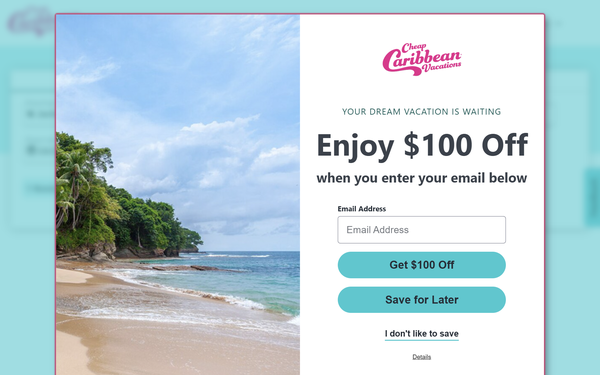
Ads have begun to serve on websites that block content,
making visitors to these sites angry because they are forced to close the window rather than click out of the ad.
This has forced site visitors to abandon the sites. One is a weather
website, and another is Sweepstakes Today.
Craig McDaniel, founder and president of Sweepstakes Today, which aggregates consumer sweepstakes offers, said his site is being
"hijacked by ads."
Site visitors have begun to see full-page ads serve up on the pages when clicking on a link that leads to the sweepstakes page. Most recently, these ads were
from Walmart and the music group AC/DC.
"I had help to follow the link to a major advertising company," McDaniel said. "They are serving the ads without my
permission. This meets the definition of hacking because they did not make an offer to advertise or place their ads on my site."
advertisement
advertisement
Most of the ads come from well-known brands and websites,
he said, naming advertisers such as Honda dealerships that are not the type of ads typically seen with low-quality secondary ad markets, he said.
When asked what these ad-service companies
get, McDaniel said “data” -- something he is sensitive about sharing with advertisers.
Website visitors have become angry with the number of ads serving up on the site they cannot
click closed, McDaniel said. By examining the code in the URL, his investigation led him to Criteo, which led him to Magnite.
Criteo did not respond to a request for comment from MediaPost,
but Magnite did.
Magnite told MediaPost that publishers would create an ad unit on the site. The site would make an ad call to fulfill the demand for the ad, but Magnite is not directly
involved with serving the ad.
"The type of ad you're talking about would pop up over the content, wait five seconds, and then the viewer could click on the x to close it," the Magnite
advertising rep said. "It's an IAB spec and it would be the publisher's choice on whether or not to serve the ad. It could be an error in the creative."
If the issue is a broken creative,
Magnite said it can alert the demand-side platform or the buyers, Magnite said.
The Magnite ad rep said no advertiser would want to block the content.
McDaniel said the ads are hurting
his brand's image and went as far to say he believes the ads are too dependent on AI.
McDaniel wrote in an email to MediaPost that the way he is reading "Criteo's involvement is, they
are the distributor of the ad, the data retainer and maybe as ad seller," explaining how he did not give this ad permission to serve up on his site. "Note that Cheap Caribbean is
partnered/associated with Tripadvisor and ALG Vacations Corp., which is backed by Hyatt Hotels."
Whether AI has a hand in manipulating ad systems without complete publisher consent
remains to be seen, and this seems to have become a major challenge for McDaniel.
GumGum on Wednesday released findings from its Digital Advertising Pulse Check, which tracks consumer
sentiment around identity-based advertising.
Based on a survey of more than 1,500 North American consumers, the index provides insights into the growing discomfort regarding the invasive
nature of data-heavy ad-targeting strategies.
The findings from the study tell advertisers that consumers “feel violated and unnerved” by today’s ad-tracking practices. Many
more have begun to block ads and are considering no longer interacting with brands that try to reach them this way.
GumGum is calling for more transparency in digital advertising. About 78% of
respondents reacted positively to the idea of a law mandating advertisers to fully disclose the personal and identity data used in targeting.
Some 62% reported they feel uneasy about the
online tracking involved in identity-based advertising, and 19% described this as feeling “completely violated,” while 43% likened it to having “an unwanted
shadow.”
There is also a threat to brand loyalty. Concerns over intrusive advertising have consequences for brand loyalty. Some 28% of consumers determined that they would be
“very likely” to stop using a brand if its advertising felt intrusive, while 44% indicated they were “somewhat likely” to do so.
McDaniel started
compiling sweepstakes on his website in 2003 and went online in 2004 after winning two himself and loved the feeling of winning prizes, with two trucks worth about $100,000. He has developed many
followers, with about 350,000 visitors who frequently come to his site.
“I almost felt guilty that I won so much money, but I used the money from the second truck to start
Sweepstakes Today,” he said. “My members have won over $50 million.”